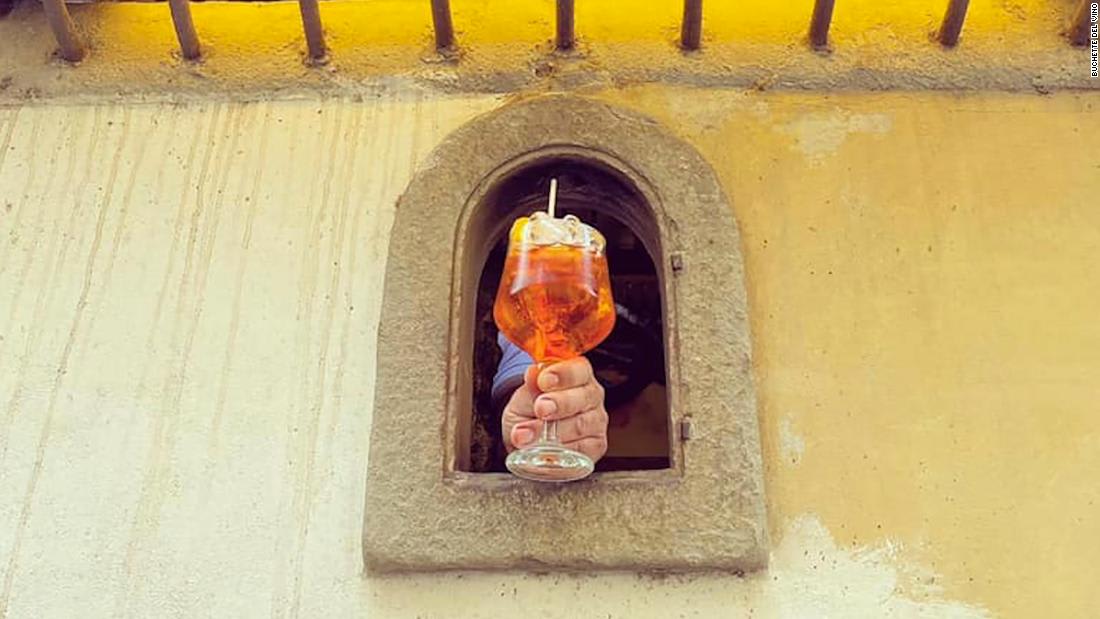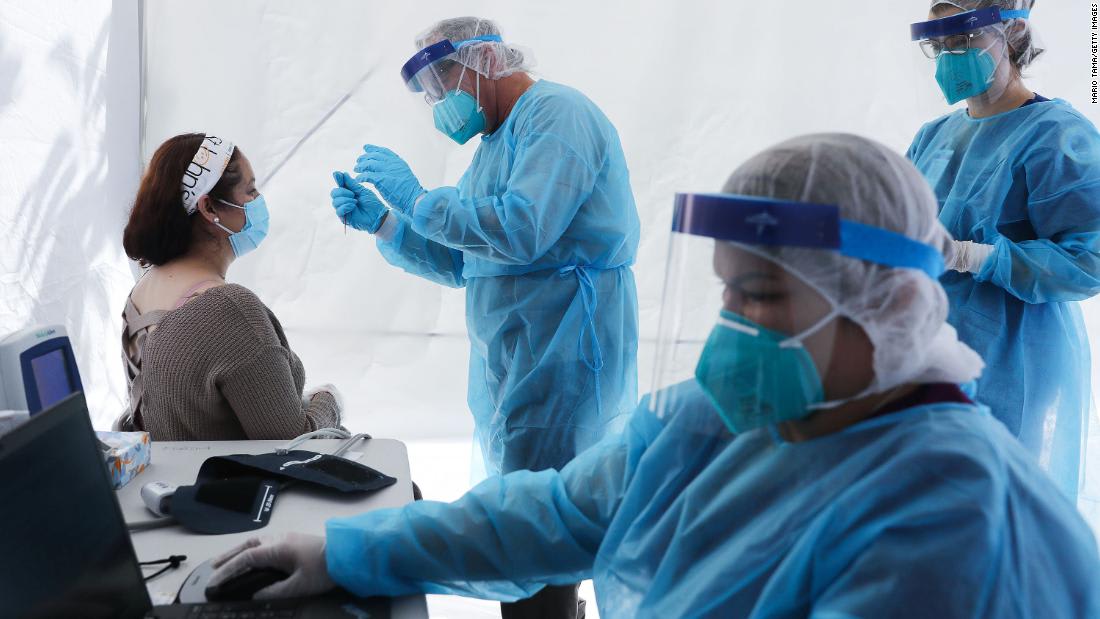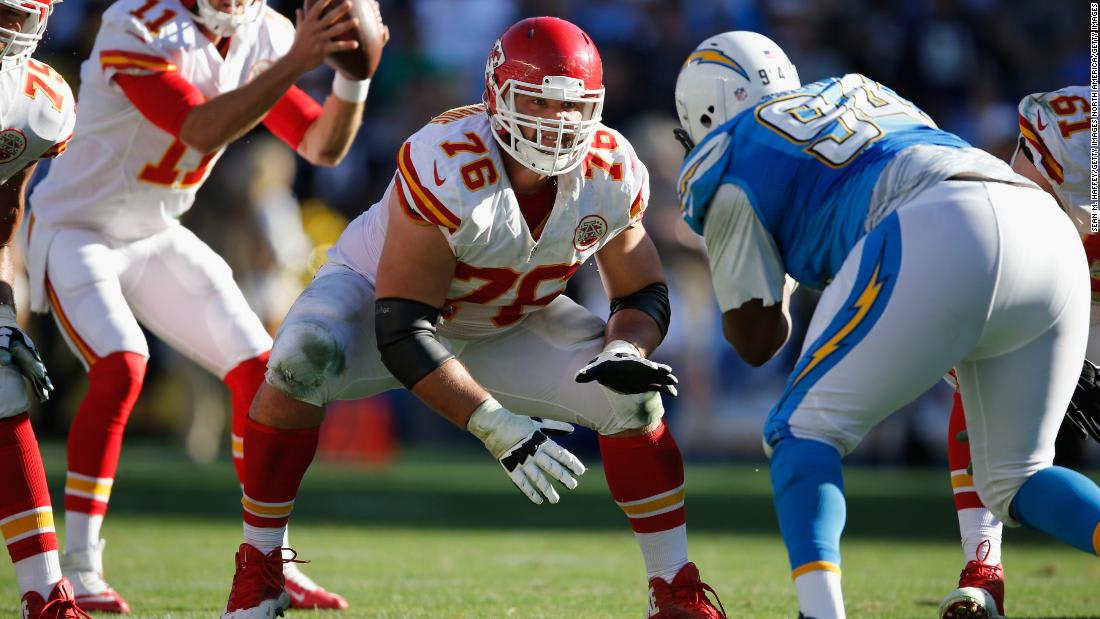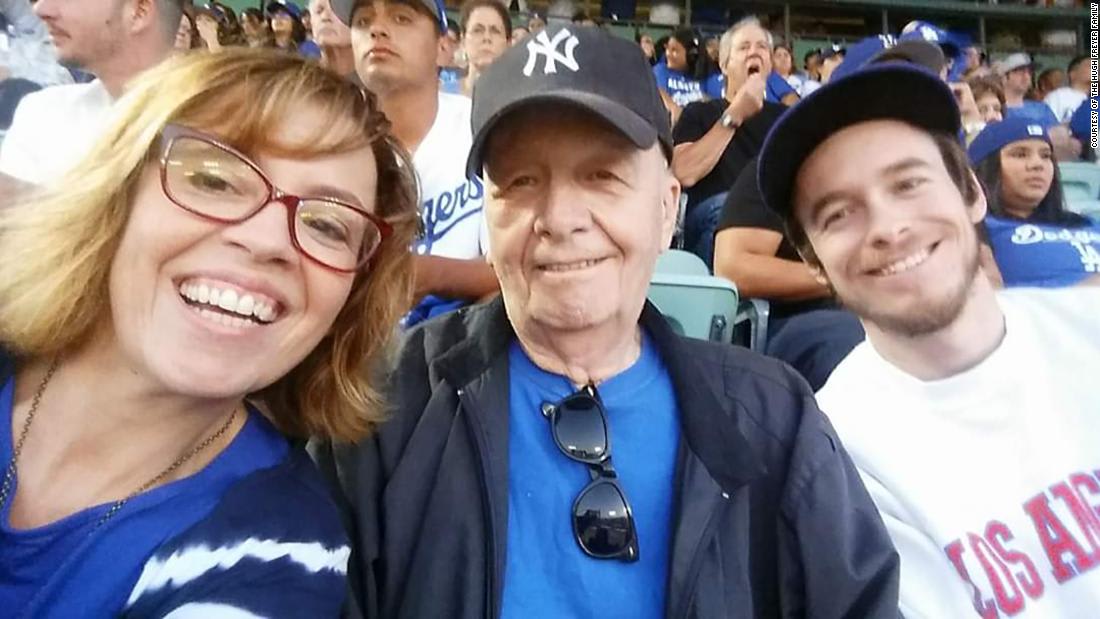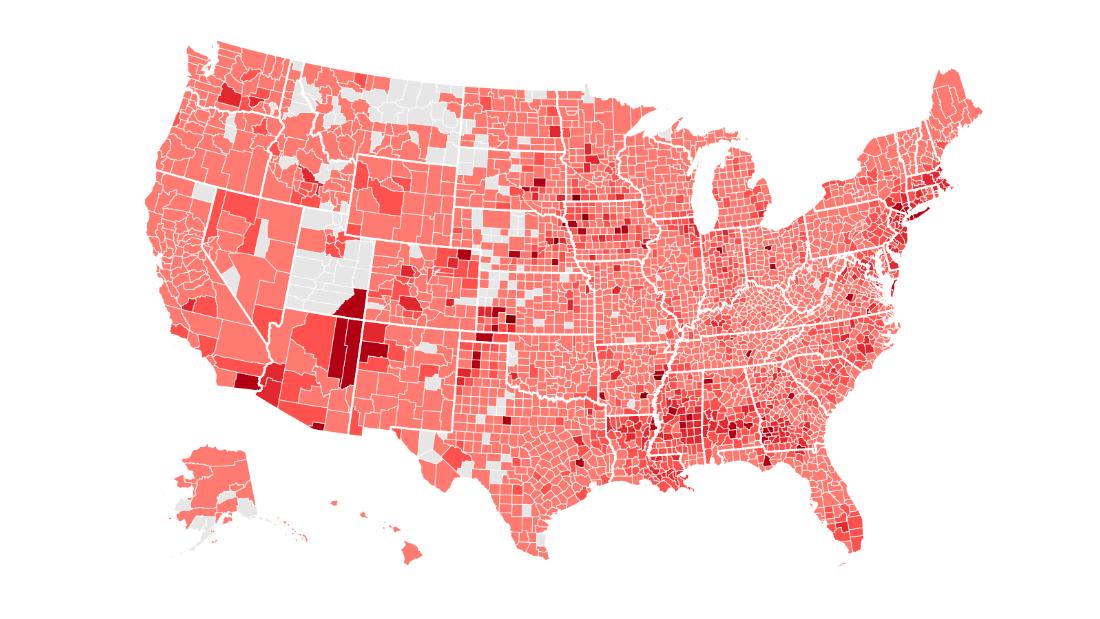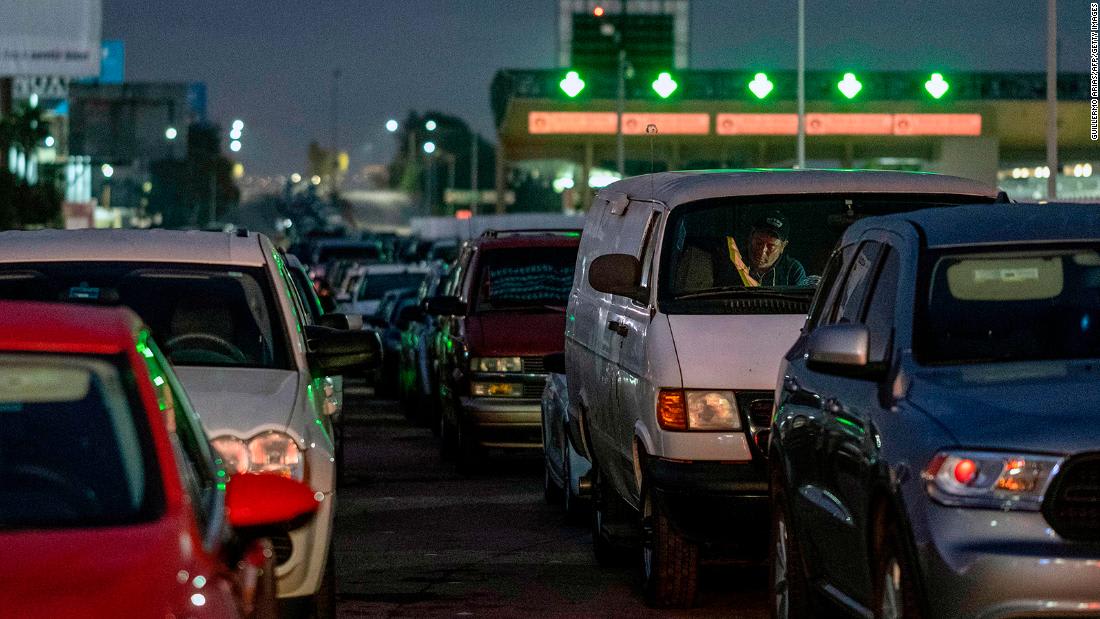This 21-year-old thought he had overcome a mild case of Covid-19. Then he went into organ failure
From CNN's Christina Maxouris
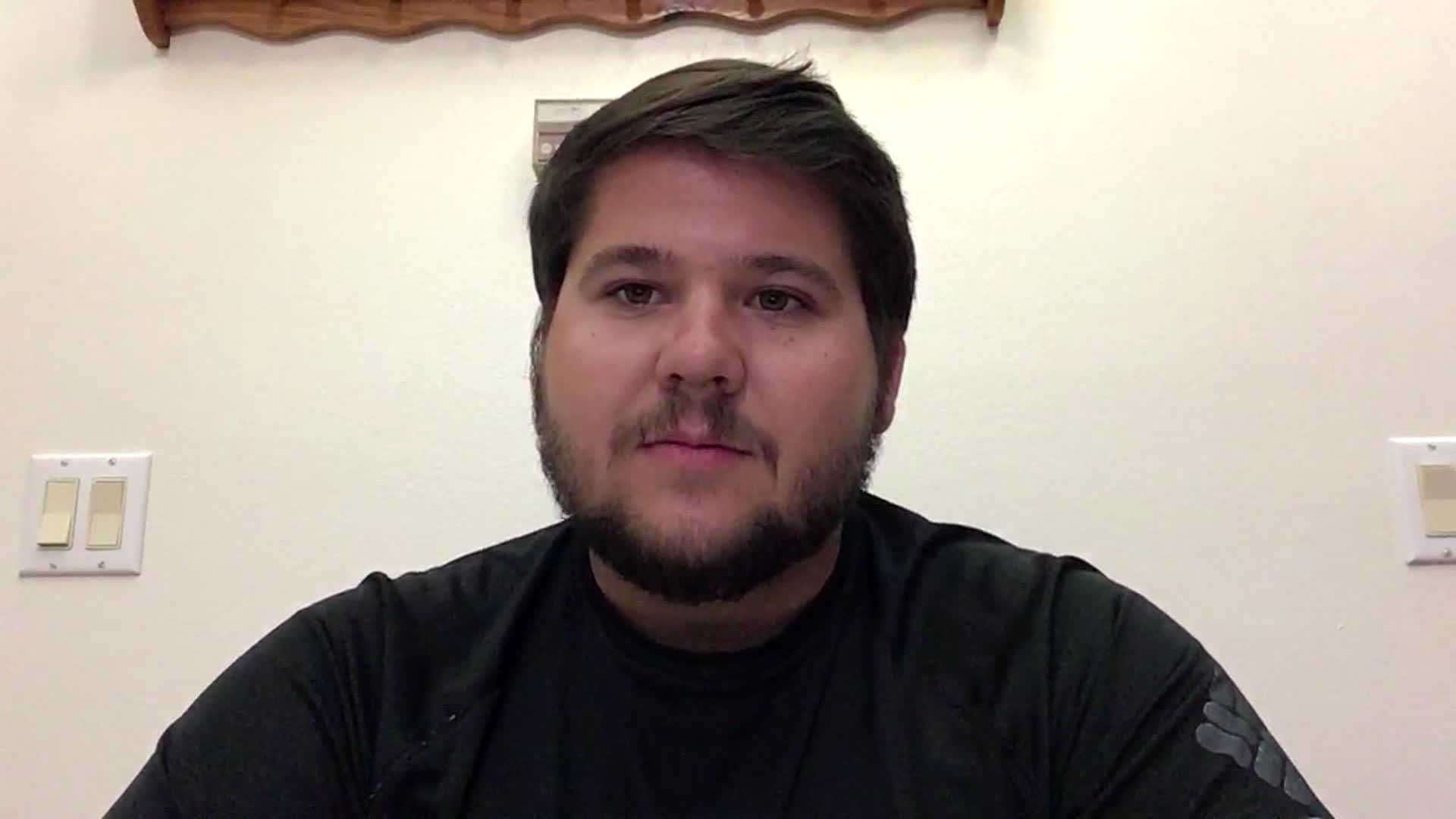 Spencer Rollyson speaks with CNN ON CNN
Spencer Rollyson speaks with CNN ON CNNSpencer Rollyson says he didn't think much of it when he experienced mild coronavirus symptoms in May. Weeks later, the disease almost took his life.
I never thought, at 21, I would be on the verge of death," he said.
Initially, the infection seemed just like the flu or a cold, he said, and the symptoms lasted for a few days.
"About a week and a half, two weeks later, I started feeling bad," he said.
Rollyson said he went to the emergency room with a 103.4-degree fever and doctors conducted several tests including chest X-rays and CT scans to find the root of the problem. Everything came back clear, he says, but within 48 hours Rollyson was in the ICU.
"That's when everything started shutting down," he said. "In two days, my body rapidly declined."
Read more here.
Putin says Russia has registered "world first" coronavirus vaccine
From CNN's Zahra Ullah in Moscow
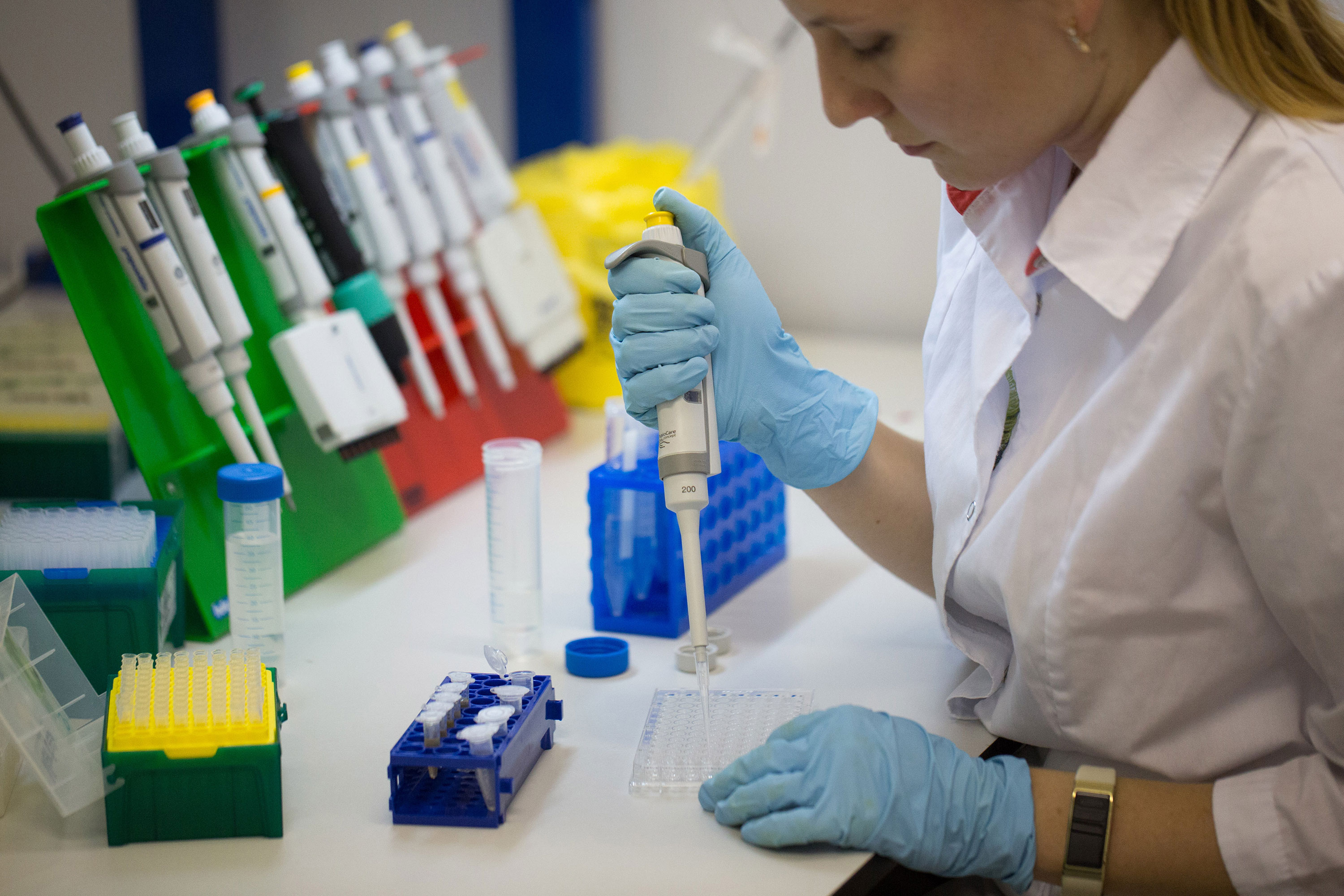 A lab technician works on production of the 'Medgamal' Covid-19 vaccine, developed by the Gamaleya National Research Center for Epidemiology on August 6 in Moscow, Russia. Andrey Rudakov/Bloomberg/Getty Images
A lab technician works on production of the 'Medgamal' Covid-19 vaccine, developed by the Gamaleya National Research Center for Epidemiology on August 6 in Moscow, Russia. Andrey Rudakov/Bloomberg/Getty ImagesRussia has approved a coronavirus vaccine developed by the Moscow-based Gamaleya Institute for use, President Vladimir Putin said on Russian state TV on Tuesday.
Speaking in a live teleconference with his cabinet ministers, Putin said the vaccine had gone through all the necessary checks.
"So we're the first to have registered. I hope our foreign colleagues' work will move as well, and a lot of products will appear on an international market that could be used," Putin said.
The Russian President revealed that one of his daughters has taken the vaccine; he said she had a slightly higher temperature following the injections, but that she now feels better.
"I think that this way she participated in the experiment. After the first injection her temperature was 38 [degrees Celsius], the next day 37-something and that's it. After the second injection the temperature also got a bit higher but that's it, then it went back down. Now she feels well."
Reports about Russia's vaccine have come amid concerns about its safety, effectiveness and allegations that the country has cut essential corners in its development.
Russian officials told CNN previously that crucial Phase 3 trials would take place after state registration of the vaccine.
Russia has released no scientific data on its vaccine testing and CNN is unable to verify its claimed safety or effectiveness.
Critics say the country's push for a vaccine comes amid political pressure from the Kremlin, which is keen to portray Russia as a global scientific force.
Coronavirus has led to a resurgence of "little wine holes" in Italy
From CNN's Marianna Cerini
 Buchette del Vino
Buchette del VinoBars and restaurants around the world are having to rethink the way they interact with customers during the pandemic. In the Italian city of Florence, some are looking to the past: using centuries-old wine windows to dole out food and drinks.
Rising just above ground level, blink and you might miss these tiny openings, called "buchette del vino," (literally "little wine holes") in Italian. The small windows were used to sell wine-to-go during the Renaissance period, and were intended to be cheaper, direct-to-consumer alternatives to taverns and other drinking dens -- not to mention a discreet way for merchants to avoid paying taxes on the alcoholic libations they were peddling.
Those merchants were Florence's elites, many of whom had the foot-tall windows built into street-facing walls of their palatial residences, usually next to the main entrance. Back in the 1500s, a number of the city's aristocrats were also major wine producers in the surrounding countryside. The "buchette" allowed them to trade (or rather, have servants do it for them) their spirits straight from their in-house cellars to basically anyone, with a reduced need for physical contact.
In May, as Italy eased its two-months-long lockdown, several F&B businesses in Florence, who happened to be based in premises with existing buchette, decided to reopen them, capitalizing on the design's minimal-contact aspect. Wine, Aperol spritzes, ice creams and sandwiches have since been served through the holes, at a safe distance.
Read more:
Vaccines and asymptomatic spreaders may hold keys to answering Covid-19 mysteries, experts say
From CNN's Christina Maxouris
As US leaders work to control the spread of coronavirus, researchers across the country -- and globe -- are working to answer the mysteries that remain around infections.
One of those mysteries: why the experience can be so vastly different from person to person. One expert says the answer may mean taking a closer look at previous vaccines individuals have had.
It's what immunologists call immune training: how your immune system creates an effective response to fight off infections, Badley says.
"A good analogy is to think of your immune system as being a muscle," he said. "The more you exercise that muscle, the stronger it will be when you need it."
There's been no definitive evidence of any other vaccines boosting immunity against Covid-19. But some researchers have suggested it's possible.
Read the full story:
At least 66 NFL players have opted out of the upcoming season because of the pandemic
From CNN's Calum Trenaman and Jill Martin
More than 60 NFL players have opted out of the 2020 season because of the coronavirus pandemic.
Players had until 4 p.m. ET on Thursday to decide and after the deadline passed, a spokesperson for the NFL told CNN that out of 2,880 players, 66 players chose to opt out.
That figure could be higher -- both NBC's Pro Football Talk and CBS reported the figure was 67 players.
The New England Patriots are the team most affected, with eight players opting out of the 2020 season -- prompting much ribald "tanking for Trevor" comment.
Highly-rated Clemson quarterback Trevor Lawrence is expected to be drafted first overall in the 2021 NFL Draft, and some fans have jokingly suggested that the team's performance this upcoming season might be reflected in a desire to gain that number one pick.
The Patriots have lost starters like linebacker Dont'a Hightower and safety Patrick Chung, who have both won three Super Bowls with the team.
Read more:
Their father's death spurred them to ask people to spend 60 seconds each week to mourn those lost to Covid-19
From CNN's Samantha Waldenberg
Every Friday, Carolyn Freyer-Jones encourages her family and friends to participate in #thefridayminute to honor her father Hugh and others who have died from the coronavirus pandemic.
The idea came out of a discussion with her brother about how sometime down the road, there may be a national day of mourning for those who have lost a loved one to Covid-19.
At noon eastern time, she wants people to take a minute to reflect and pray, and even send love and support to families who have been affected by coronavirus this year.
"The minute is a way to remind ourselves that we are all connected regardless of situation or circumstance. My father is everyone's father, or husband, or grandfather, or friend," Carolyn Freyer-Jones told CNN.
During this minute and several times throughout the past few weeks, Carolyn has been thinking about her own father, who she said died from coronavirus complications on his 86th birthday.
Read more:
Nearly 5.1 million coronavirus cases have been identified in the US since the pandemic began
At least 5,094,400 coronavirus cases and 163,463 virus-related deaths have been identified in the United States since the pandemic began, according to Johns Hopkins University.
On Monday, Johns Hopkins reported 49,536 new cases of Covid-19 and 525 reported deaths.
The figures include cases from all 50 states, the District of Columbia and other US territories, as well as repatriated cases.
CNN is tracking US coronavirus cases here:
Citing coronavirus, Trump administration weighs more restrictions on US-Mexico border
From CNN's Priscilla Alvarez
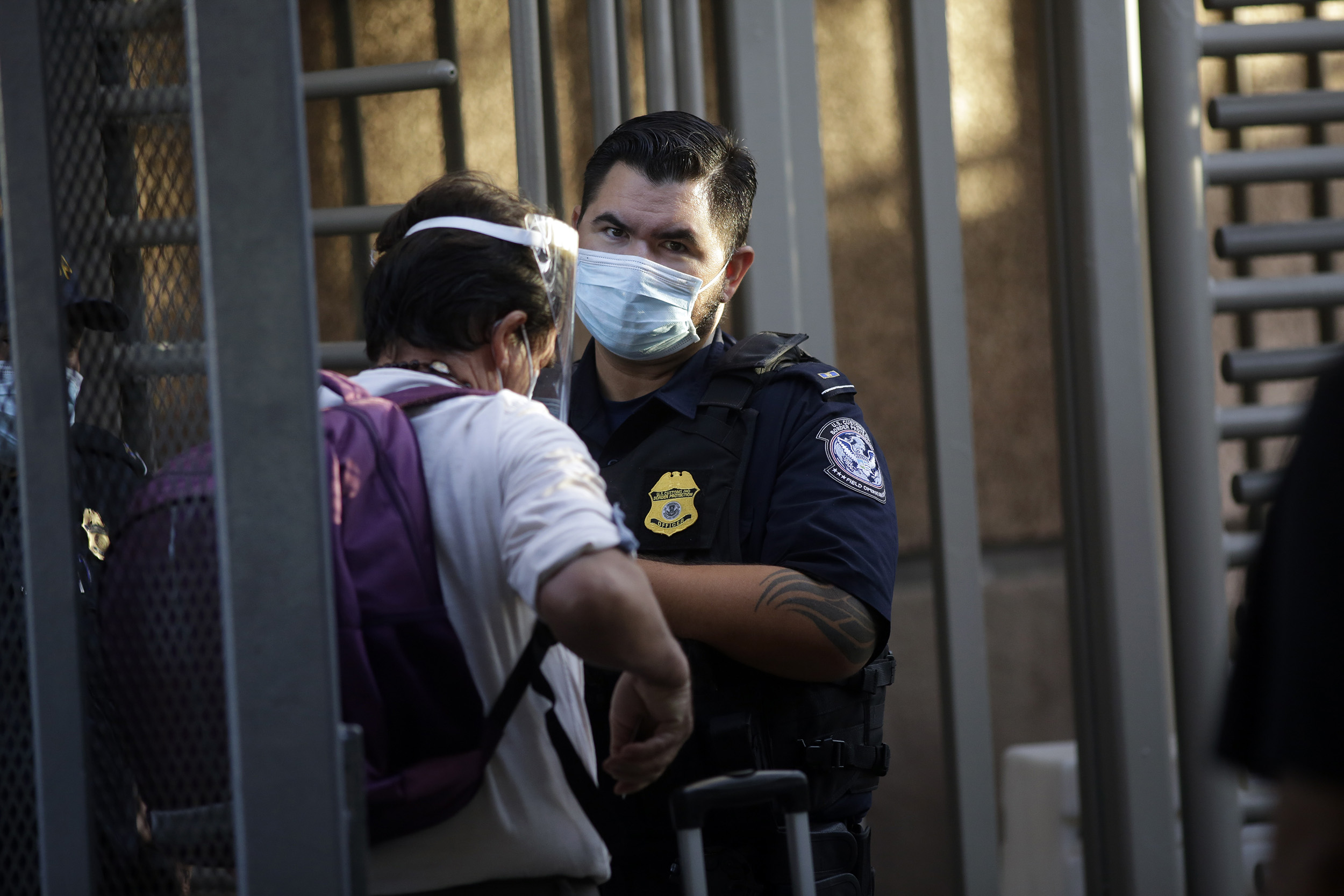 A US Customs and Border Protection officer speaks to people as they cross the border from Mexicali, Mexico, to Calexico, California, on July 22. Gregory Bull/AP
A US Customs and Border Protection officer speaks to people as they cross the border from Mexicali, Mexico, to Calexico, California, on July 22. Gregory Bull/AP The Trump administration is considering ways to restrict entry on the US-Mexico border that could include US citizens and lawful permanent residents over coronavirus concerns, according to a source familiar with the matter.
It's the latest attempt by the administration to seal off US borders, citing the virus. In March, the administration invoked a public health law to swiftly remove migrants, including children, who are apprehended at the border. That action, including a series of other travel restrictions, has been extended over the course of the pandemic.
The options being weighed by the administration would also likely rely on authorities from the US Centers for Disease Control and Prevention, the source said. The New York Times first reported on the possibility of barring Americans from returning to the US on a limited basis amid fears they may be infected with the coronavirus.
CNN reached out to the CDC and the Department of Homeland Security, which declined to comment.
A draft memo obtained by the Times says any move to block citizens and legal permanent residents must "include appropriate protections to ensure that no Constitutional rights are infringed" and would apply "only in the rarest of circumstances."
Read more:
Australia’s internal borders are going to stay closed
From CNN's Angus Watson in Sydney
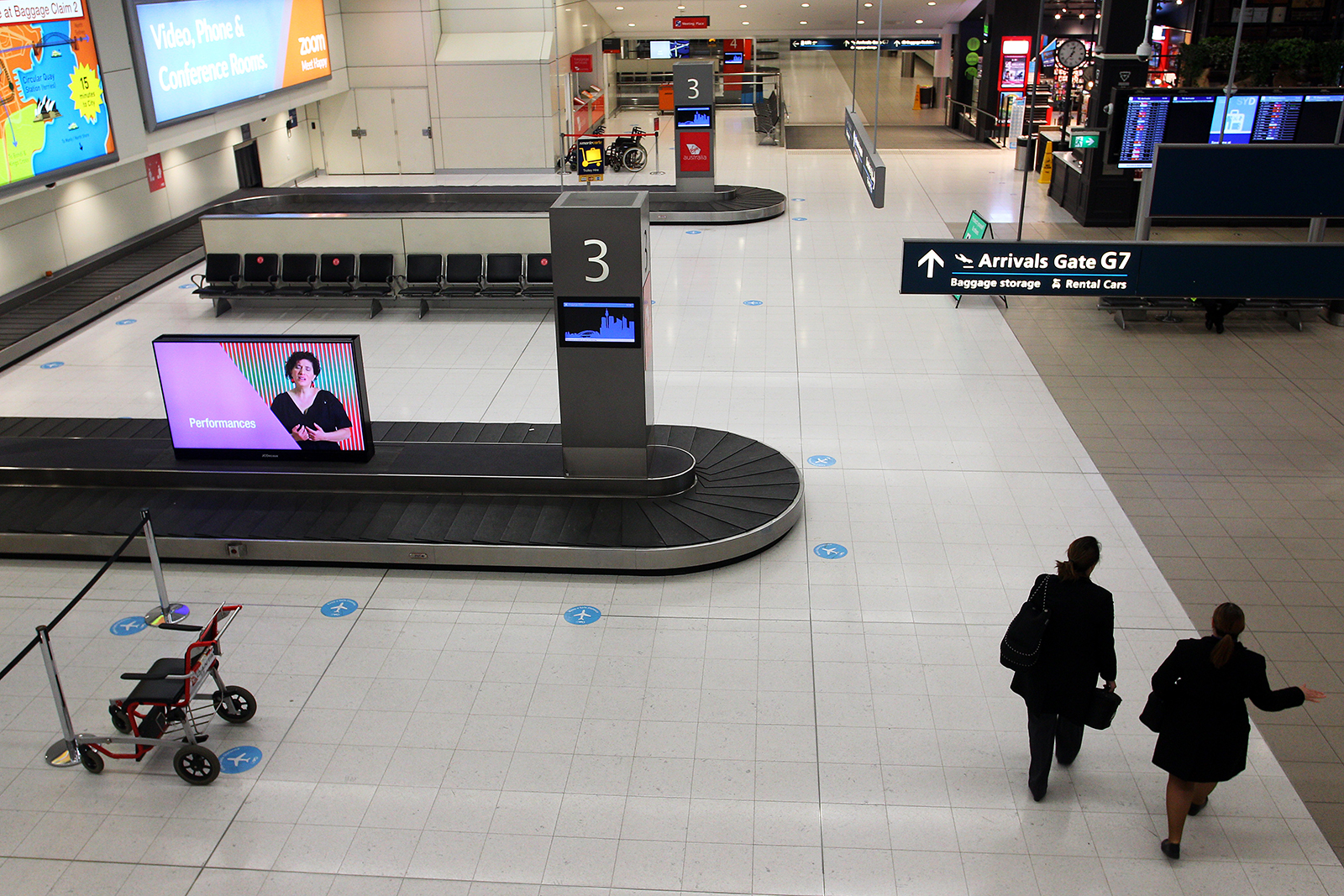 Airline staff walk past empty baggage carousels at the Sydney Domestic Airport Terminal arrivals area on August 7 in Sydney. Lisa Maree Williams/Getty Images
Airline staff walk past empty baggage carousels at the Sydney Domestic Airport Terminal arrivals area on August 7 in Sydney. Lisa Maree Williams/Getty ImagesAustralia’s states and territories will remain closed off from one another in the coming days, state and federal leaders said, as authorities continue to try to stop the latest wave of coronavirus cases in the country.
The state of Victoria, where Melbourne is located, has been dealing with a major upswing in cases in recent weeks. Authorities in Victoria identified 321 new Covid-19 cases Monday and 19 deaths.
New South Wales detected 22 new cases on Monday -- the highest in a single day since April.
Prime Minister Scott Morrison said Monday that “it's unlikely that we were able to move back to a restriction-free society” by Christmas.
Here are some of the regional policies:
Victoria remains closed to all of Australia’s states and territories.
Northern Territory Chief Minister Michael Gunner said Tuesday that he plans for an 18-month border closure between his region and anywhere considered a hotspot -- including Australia's two largest cities, Melbourne and Sydney.
Western Australia and Tasmania remain closed to people from all other states.
Queensland and South Australia are closed to residents of Victoria and are quarantining anyone traveling in from New South Wales.
The Australian Capital Territory requires anyone traveling to the capital from Sydney or the state of Victoria to undergo a quarantine upon arrival.

 5 years ago
503
5 years ago
503 